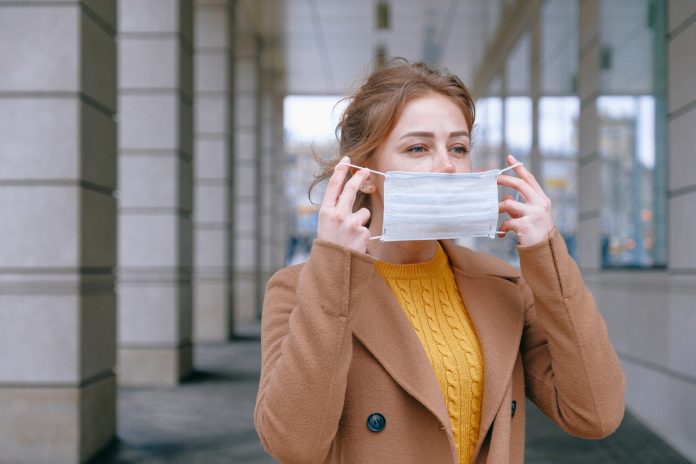The growth of Bulgarians with addictions who, after a long treatment, have returned to drugs, alcohol or gambling is serious. The reason – anxiety and stress provoked by the restrictions due to COVID-19. After years under the control of drugs, a young working mother V.C. manages to fight drugs. However, the restrictions due to the pandemic are beginning to adversely affect her will.
“We were wearing masks, we couldn’t communicate normally, it’s very nerve-wracking.”
Resorting to drugs again is inevitable, or at least that’s what V.C. thinks. What follows is job loss, distancing from her family and child, and failure. The pandemic is driving ex-drug addicts back to their vices. Social distancing and masks are among the main reasons for the regression.
Not being able to meet with relatives and friends affects us a lot. Masks are also stressful. 30% of people who had stopped using drugs for a long period resumed the use of psychoactive substances. As with most mental disorders, and patients with substance abuse and dependence, the effect of the COVID-19 pandemic is having a negative impact. Directly – through increased levels of stress, anxiety and depression leading to escalation of use and indirectly through postponing, avoiding or stopping a treatment or relapse prevention under the powerful influence of fear of contagion.
During the lockdown at the beginning of the epidemic, due to the refusal or unwillingness of not a small number of patients to continue their therapy online, for various reasons, they practically stopped their treatment. For others, moving to an online consultation format remains the preferred way to continue treatment, which somewhat reduces its effectiveness.
He (P.F.) is 28 years old and was first admitted to the emergency department of a large Sofia hospital. He used to work as a hotel manager after his high school graduation and by that time was living with his girlfriend. P.F. is responsible, disciplined and hardworking. He likes to “dissolve with paradise gas”. His mother reports that she has seen him “passing out” while inhaling the gas but even such incidents haven’t been able to make him stop and break the habit. During the lockdown, the hotel he was working at had to close. This left P.F. at home. The situation led to an increase in the use of paradise gas. After swallowing a large amount of the paradise gas, P.F. developed psychosis -expressed in the belief he is being monitored, “there are reports that everyone in Sofia will die, there are orders from above to save his relatives, he thinks they will kill him…”. It’s rampant, aggressive and auto-aggressive with rich crazy production. He was treated for a month in psychiatry and is currently undergoing medical treatment. He has been a client of “Hidden Likes” Youth House for a year. He is now back to his work habits, working hourly at the hotel, but partially attending the group therapy sessions at the House. His first steps in his workplace are guided by a mentor – one of our psychologists.
Changes in addictions as a result of COVID-19?
Excluding nicotine, the most common addiction is alcohol, followed by tetra cannabinoids and stimulants. Heroin addiction is less common in our practice. Regarding a change for any of the addictions according to the situation, whether there is a change in the frequency of occurrence of types of addictions among the population, is not noticeable in a distinct way. We all see how in recent years many young and not-so-young people spend a significant part of their time online – in games, on social networks or just surfing. It’s as if the pandemic that isolates us from our social contacts has reinforced this “modern” trend.
In the treatment and prevention of substance abuse and addiction, as well as gambling, depression, anxiety, phobias, and emotional burnout are often at the root of triggering use and addiction. Our observations show an increase in these mental health problems and illnesses.
The number of clients with alcohol addiction in the Youth House increased. As a result of the pandemic, the use of alcohol has increased – both in frequency and in the number of people who try to overcome their stress and difficulties through alcohol.
The closure of schools and universities, isolation at home, as well as extended periods of online participation in classes, have hurt the psychophysical condition of young people. They need social-emotional contact, especially in the specific sensitive age periods for psychological development. Of course, the measures affect all of them in different ways and to varying degrees according to their personalities. As with adults, the pandemic has increased the use of surfactants among children and youth. Among them, the most common harmful use is nicotine, followed by alcohol, amphetamine, methamphetamine, ecstasy and, less often, hallucinogens, non-prescribed psychotropic drugs and opiates. At these ages, addictions are rarely reached. If this happens, the addiction is to opiates, which are the most quickly addictive.
The team of experts of the Youth House “Hidden Likes”
Our team had to adapt very quickly to the situation in the country and the world. I think all colleagues managed the challenge. As with every other person we also have our fears and uncertainties about the development of the pandemic. Just as doctors mobilize all their resources in such situations, as representatives of the helping professions, we also see it as our duty to care for our NEETs who are in crisis or need it. The difficulties in this type of public situation arise rather from the individual characteristics of the clients and not so much from the flexibility of professionals who are prepared to work under pressure and adapt quickly.
Dr. Tsvetelina Petkova, psychiatrist at the LIKE project
Dr. Yuri Katsarov, clinical psychologist at the LIKE project


